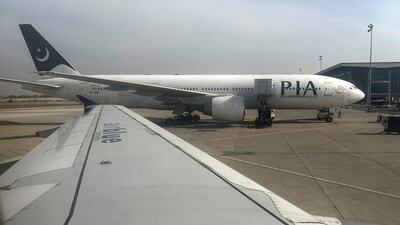Governments worldwide are blocking $1.7 billion in airline funds as of October's end, threatening global aviation connectivity, according to a report by the International Air Transport Association. While this marks a slight improvement from $1.8 billion in April 2024, the issue remains critical as airlines struggle to access revenue from ticket sales and other operations.
Nine countries accounting for 83 per cent of the airline industry’s blocked funds, amounting to $1.43 billion, include Pakistan, Bangladesh, and several African nations, Iata said. Pakistan alone accounted for $311 million in blocked funds, however that's down from $411 million in April. In Pakistan, the main problem is the system of audit and tax exemption certificates, which is causing long processing delays, said Iata, which represents nearly 340 airlines comprising over 80 per cent of global air traffic.
Iata’s director general Willie Walsh urged governments to uphold their treaty obligations and enable the repatriation of airline funds, warning that any delay could jeopardise aviation connectivity and harm local economies. He said airlines cannot be expected to maintain services if they are unable to access their own revenue.
“This unfortunate game of ‘whack-a-mole’ is unacceptable. Governments must remove all barriers for airlines to repatriate their revenue from ticket sales and other activities in accordance with international agreements and treaty obligations.
“No country wants to lose aviation connectivity, which drives economic prosperity. But if airlines cannot repatriate their revenue, they cannot be expected to provide a service. Economies will suffer if connectivity collapses. So it is in everyone’s interest, including governments, to ensure that airlines can repatriate their funds smoothly,” Mr Walsh said.
In Bangladesh, the amount of blocked funds decreased to $196 million from $320 million in April. Its central bank needs to “prioritise airlines’ access to foreign exchange in line with international treated obligations”, Iata said.
In Africa, about 59 per cent of total blocked funds – nearly $1 billion – remain stuck in countries including Algeria, Ethiopia, and Mozambique, despite reductions in some areas. Over the last six months, there were significant reductions in blocked funds in Algeria ($193 million from $286 million in April) and Ethiopia ($43 million from $149 million in April). At the same time, XAF zone (over $84 million), Mozambique (over $84 million) and XOF zone (over $73 million) contributed to the largest increases, Iata said.
The XAF and XOF are regional currencies used by countries in Central and West Africa, respectively, both of which are pegged to the euro and subject to foreign exchange controls that can restrict the repatriation of airline revenue.
Bolivia is new to the list of blocked fund countries, Iata said. A further deterioration in the availability of foreign exchange, particular the US dollar, has resulted in an estimated $42 million in airline funds being blocked in the country.


